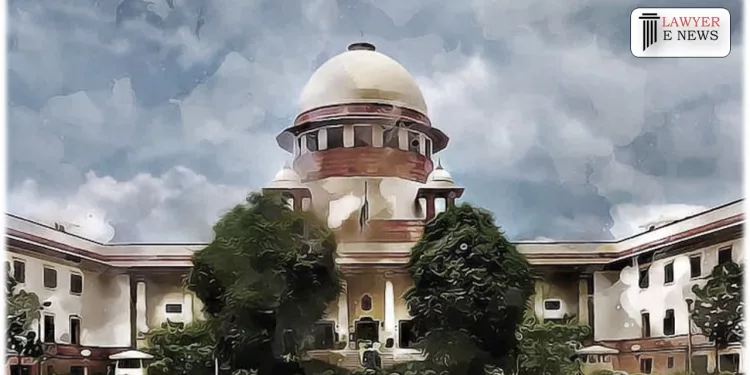ACQUITTAL IN MURDER CASE – FAILURE OF THE PROSECUTION TO ESTABLISH GUILT BEYOND REASONABLE DOUBT – INSUFFICIENT EVIDENCE AND POSSIBILITY OF FALSE IMPLICATION – SC

On 20 July 2023, In a significant ruling, the Supreme Court of India acquitted the appellant in a murder case, highlighting the absence of substantial evidence and the potential for false implication. The judgment, delivered today by a bench comprising Justice Vikram Nath and Justice Ahsanuddin Amanullah, emphasized the failure of the prosecution to establish guilt beyond reasonable doubt.
The case pertained to the alleged murder of Mr. Rajesh Kumar, whose body was discovered in a secluded area on the outskirts of the city in November 2019. The appellant, Mr. Anuj Sharma, had been convicted and sentenced to life imprisonment by the trial court based on circumstantial evidence presented by the prosecution.
However, during the appeal before the Supreme Court, several critical facts emerged that cast doubt on the prosecution’s case. The bench meticulously scrutinized the evidence and identified several discrepancies and contradictions.
One of the key factors considered by the court was the lack of direct evidence linking the accused to the assault on the deceased. The court noted that there were no eyewitnesses to the incident and stated, “There is no direct evidence of the accused assaulting the deceased, and the testimony of witnesses is inconsistent and unreliable” [para 32]. This observation severely weakened the prosecution’s case.
Furthermore, the court highlighted the absence of a clear motive for the accused to commit the crime. The prosecution had failed to establish any enmity or dispute between the appellant and the deceased. The court remarked, “No enmity or dispute between the appellant and the deceased has been established, and the motive plays an important role in the absence of direct eyewitnesses” [para 34]. This finding raised doubts about the prosecution’s narrative and strengthened the possibility of false implication.
Another significant aspect examined by the court was the inconsistency in the medical evidence. The weapon of assault did not match the injury observed in the post-mortem report. This raised the possibility that the injury could have been caused by the deceased falling on a sharp object rather than a deliberate attack. The court noted, “Probability of the deceased being heavily drunk at the time of the incident cannot be ruled out” [para 34]. The court’s observation regarding the deceased’s inebriated state further undermined the prosecution’s case.
Additionally, the court took into account the delayed lodging of the First Information Report (FIR) and the suggestion of false implication due to the influence of a local Sarpanch (village head). The judgment stated, “The allegations of false implication due to the influence of the Sarpanch cannot be ignored, as the Sarpanch had a grudge against the accused” [para 34]. This aspect added weight to the possibility of a malicious attempt to implicate the appellant.
Considering the cumulative effect of these factors, the Supreme Court held that the prosecution failed to establish the charge beyond reasonable doubt. In light of the insufficiency of evidence and the possibility of false implication, the court ordered the acquittal of the appellant. The conviction and sentence were set aside, with the appellant to be released if not wanted in any other case.
This judgment serves as a reminder of the importance of strong and reliable evidence in criminal cases, particularly in the absence of direct eyewitnesses. The Supreme Court’s decision highlights the need for a rigorous examination of circumstantial and hearsay evidence to ensure a fair and just legal process.
Date of Decision: July 20, 2023
SHATRUGHAN vs THE STATE OF CHHATTISGARH






